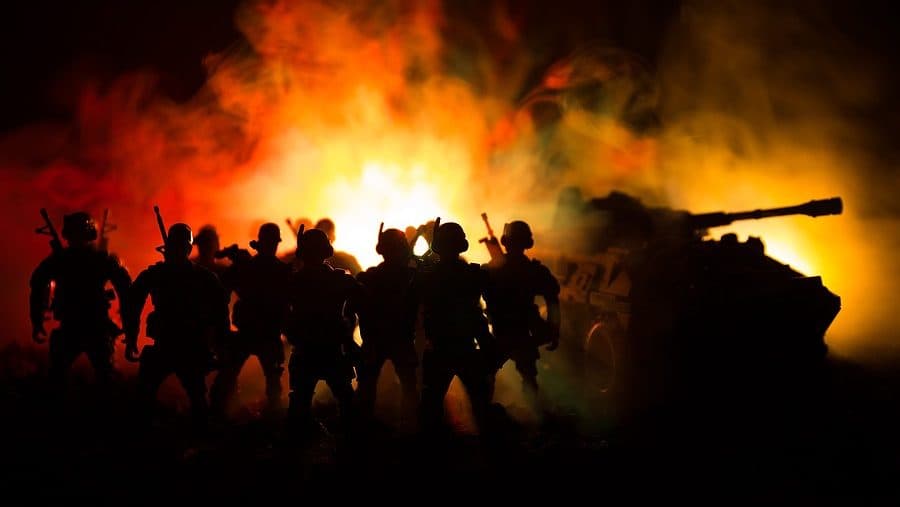On October 7, I woke up at 6:30 a.m., to the loud sound of the street alarm. Rockets were being fired at our home (and other parts of Israel). My two boys and I ran to the in-house shelter. We’ve had alarms before, so it wasn’t the first time, but this time was different. It just didn’t stop.
Usually, you’d have one or two alarms a day, tops. But that day, we kept receiving more and more alarms to hide (meaning rockets were fired directly at our city). We also started seeing unbelievable videos on the news of terrorists driving cars in the middle of a town less than 20 miles from our house. We were terrified.
By now, most people are familiar with the aftermath of that day. For me personally, that includes a friend’s 18-year-old daughter who was murdered, another friend’s son who was kidnapped, and my friend’s granddaughter who was killed. My son also lost two friends that day. The list goes on for all of us.
In other words, the attacks and subsequent war have infiltrated nearly all aspects of life in Israel. That includes recruiting.
The State of Wartime Recruiting
During the first month since the attacks and subsequent start of the war, most companies in Israel froze their hiring processes. Even factories supporting the war stopped hiring. This was mainly because no one knew what was going to happen next.
Eventually, though, some businesses started hiring again — a lot.
There’s been a continual doomsday atmosphere here, perhaps like before a hurricane when people stock up on water, canned food, and basic necessities for the long term. Likewise, factories that manufacture and import such goods here started hiring like crazy. At the same time, this also might speak to a general resilience in the country to attempt to carry on business as usual come hell or high water. We all had to go back to work, after all, and that includes recruiting.
You can see this in the numbers via information collected from hiring teams in over 65 companies across all industries (with roughly 35% in hi-tech) during the first 80 days of the war. (And currently, about 89% of the companies in Israel are hiring, most of them as before, or even more so.)

“Normal Hiring” vs “Normal Wartime Hiring”
There are several critical differences between “normal hiring” and “normal wartime hiring.” Truth is, everything and everyone continues to be affected by an ongoing war. The only certainty is that everything is uncertain.
For example, we have over 30,000 Israelis who’ve been recruited into the army reserves. This includes candidates, employees, and hiring managers. They are now in the battlefield fighting. Many people also have children fighting in the army. They worry about them as they make efforts to continue their daily routines as employees or managers. Then, too, a lot of people have been uprooted from their homes due to the war and cannot continue their jobs as before, while others had to separate from their families to continue working.
How does all this impact recruiting?
Well, suppose a candidate accepted an offer on October 5 but has since been recruited to serve in the military. Or imagine one of your recruiters has three small children and can’t work because there are no active kindergartens in her area, so the employee is staying in a hotel with them. Or imagine a candidate who you find out has been killed in the war.
Many recruiting departments do not have to imagine such scenarios. They are living them, along with trying to manage other challenging situations that I’ve heard about from numerous talent acquisition professionals.
The larger point is that during wartime, everybody is affected. Still, some hiring managers mistakenly assume that since several companies (like those in tourism) are not hiring because of the war, then there are plenty of candidates just waiting to be recruited. And so they expect recruiters to deliver still based on a very specific (pre-war) candidate profile.
Yet given that the talent pool is especially in flux right now, it is particularly not feasible to ask that candidates have five years of experience in a very specific coding language, a degree in computer science from Harvard, and live within 20 miles of the work location. (Never mind that the unemployment rate is still very low at 3.2%, lower than before the war.)
Another challenging aspect of recruiting is figuring out how to reject a candidate who is fighting in a war? Indeed, employers are anxious and cautious regarding contacting candidates. As a result, some are over-apologizing in emails, while others ignore the situation altogether. Many organizations struggle to communicate with candidates.
Additionally, candidates are more apt these days to get cold feet. That is, many go through the hiring process only to withdraw in the final stages. They’re afraid to move, which is a common trend during crises. Many people fear the unknown of quitting jobs. A good number won’t even send out their CV.
Granted, recruiting is frequently a very lonely position, where you find yourself toggling between candidates, management, and hitting your targets. When everybody (including you) is anxious about what’s going on outside of the business, keeping yourself together and delivering on recruiting is very difficult. Nonetheless, consulting with other recruiters in the community helps everyone move forward, one small step at a time.
Looking ahead, as employers in Israel enter a year marked by conflict, everyone hopes for an end to the war and a return to normalcy for everyone impacted by it.
